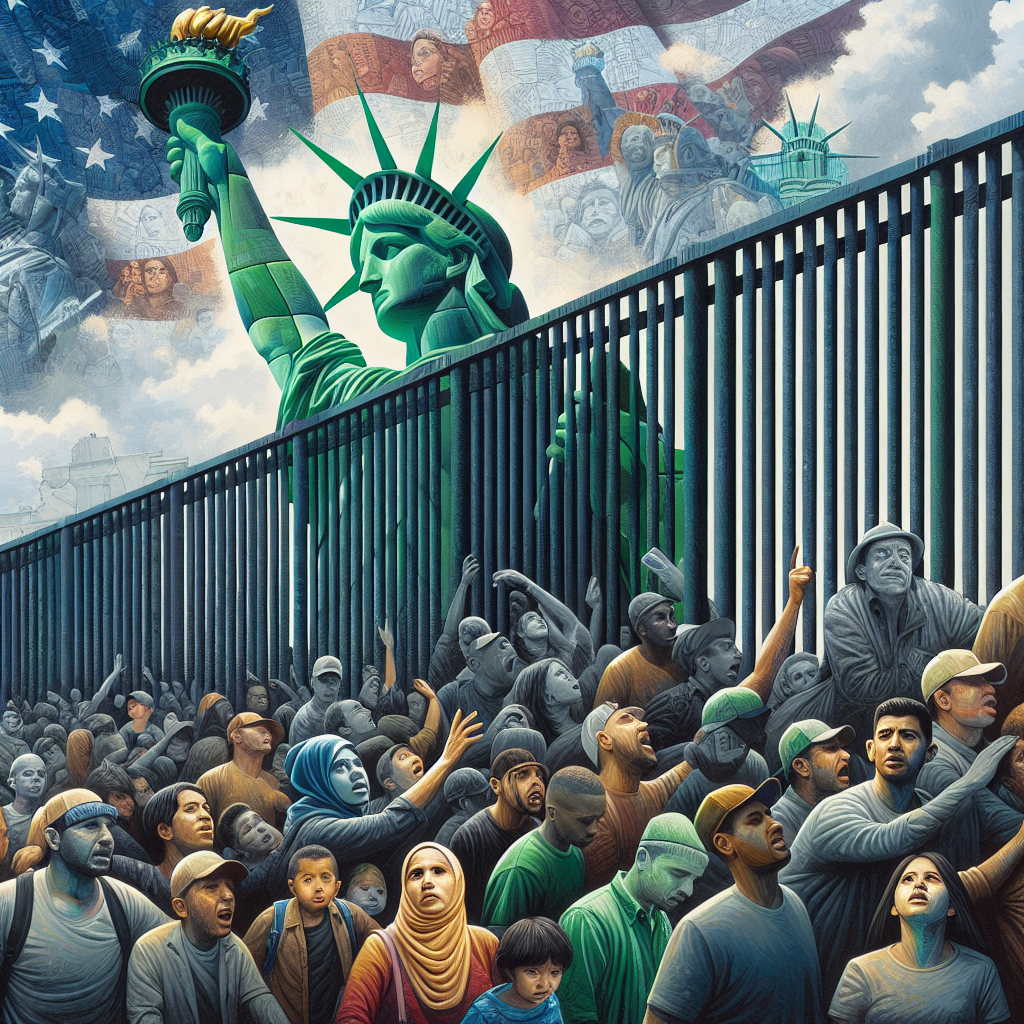The US Immigration Conflict
The US Immigration Conflict
Overview
The US Immigration Conflict remains a contentious issue, characterized by political, social, and economic challenges. This complex topic involves debates over border security, immigration policies, and the humanitarian treatment of migrants. The conflict has significant implications for the nation’s demographics and its international relations.
Key Issues
- Border Security: The debate over how to secure the US-Mexico border continues, with discussions focusing on physical barriers, technology, and increased personnel.
- Policy Reform: There is ongoing contention over immigration laws, including pathways to citizenship for undocumented immigrants and visa regulations.
- Humanitarian Concerns: The treatment of migrants, especially children and families, in detention centers has sparked widespread criticism and calls for reform.
- Economic Impact: Immigrants play a crucial role in the US economy, contributing to various sectors, yet their presence also raises concerns about job competition and resource allocation.
Political Landscape
The immigration conflict is deeply intertwined with US politics, often serving as a polarizing issue between parties. While some advocate for stricter controls and enforcement, others push for more inclusive policies and comprehensive reform. This division influences legislative efforts and election campaigns.
International Relations
US immigration policies have far-reaching effects on its relationships with neighboring countries, particularly Mexico and Central American nations. Collaborative efforts are essential to address root causes of migration, such as violence and poverty, in these regions.
Conclusion
The US Immigration Conflict is a multifaceted issue that requires balanced solutions addressing security, policy reform, humanitarian needs, and economic considerations. As the nation grapples with these challenges, the outcome will shape the future of American society and its role on the global stage.






































